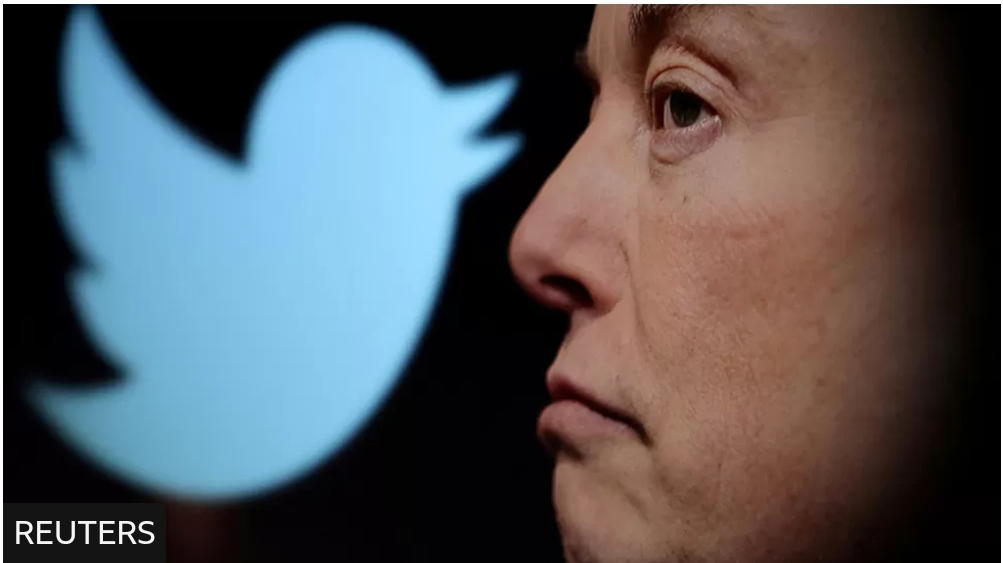Elon Musk to Resign as Twitter CEO, Here's Who Could Replace Him
Elon Musk, the entrepreneur behind many of the world's most innovative companies, has announced he will be stepping down from his role as CEO of Twitter. This news has sent shockwaves throughout the tech community, as it was only a few months ago that Musk took on the role. Now, speculation has begun as to who will replace him and take the reins at the social media giant. In this blog post, we will take a look at who could be the next Twitter CEO following Elon Musk's departure.
Why is Elon Musk leaving?
Elon Musk recently announced his intention to step down as the CEO of Twitter, citing the need for a replacement. The news came as a shock to many Twitter users, especially considering Musk's immense influence on the platform. After more than a decade of active leadership and involvement in the company, Musk is now looking for someone to take the helm.
Musk mentioned that he's looking for a "less intense" job, indicating that he would prefer to focus his energy on other projects. His resignation also follows his other major business ventures, such as SpaceX and Tesla, which have taken up much of his attention in recent years. As such, finding a suitable replacement who can fill Musk's shoes will be crucial in ensuring the continued success of Twitter.
What are the qualifications for the new CEO?
Finding a suitable replacement for Elon Musk as Twitter CEO is no easy task. It will take an experienced, innovative leader who can handle the massive public platform with maturity and grace. To be considered for the role, the ideal candidate must have an in-depth knowledge of social media, digital marketing, and technology. They should be a strategic thinker and able to create forward-thinking business plans that will keep Twitter competitive and relevant in the years to come. Moreover, they need to have exceptional communication skills and the ability to stay ahead of the latest trends. They must be able to build strong relationships with stakeholders and lead a diverse team. Finally, they must have a passion for connecting with people, which is the core of Twitter's mission.
Who are the top contenders for the position?
When it comes to who could potentially replace Elon Musk as the CEO of Twitter, there are a few names that are being floated around. The first is Facebook COO Sheryl Sandberg. She has experience running a major tech company and has been involved in Silicon Valley for years. Another potential candidate is YouTube CEO Susan Wojcicki, who has also been mentioned as a possible replacement.
Another name being suggested is Jack Dorsey, the founder of Twitter and former CEO. Dorsey has extensive knowledge of the platform and could potentially be a great choice to take over the helm from Musk. In addition to this, Dorsey is currently working on another startup called Square and his passion for technology could make him an ideal fit for the role.
The final potential candidate for the position is Twitter's current COO, Omid Kordestani. He has been with the company since 2015 and knows the ins and outs of how things operate. Additionally, he has been a driving force behind some of Twitter's major initiatives and could possibly be the perfect person to take over from Musk.
Ultimately, it remains to be seen who will replace Musk as the CEO of Twitter. Whoever it is, they will have some big shoes to fill and will need to be prepared to handle the responsibilities of running one of the largest tech companies in the world.
What will happen to Twitter without Elon Musk?
The departure of Elon Musk from Twitter as its CEO will leave a huge void that will be difficult to fill. Musk was a major force behind the platform’s growth and success, providing visionary leadership and innovative ideas. He was able to quickly identify opportunities, mobilize resources, and build strong relationships with key stakeholders. Without him at the helm, Twitter is facing an uncertain future.
Musk was a big advocate for using Twitter as a platform for social change and innovation. He was unafraid to speak out on important issues and leveraged the platform to make his voice heard. His departure could mean that Twitter will lose its competitive edge in terms of developing and deploying new products and services.
Musk was also a major advocate for user privacy, often pushing for tighter controls on data collection and usage. Without his guidance, it is possible that Twitter’s privacy policies may be watered down in the future, making it easier for the platform to collect and monetize user data.
Finally, Musk’s presence on the platform provided a certain level of star power and excitement that will be difficult to replicate. His presence alone was enough to draw in a large number of users who were drawn to his unconventional style and vision. Without Musk as a figurehead, it is unclear whether Twitter will be able to attract new users or retain its current user base.
